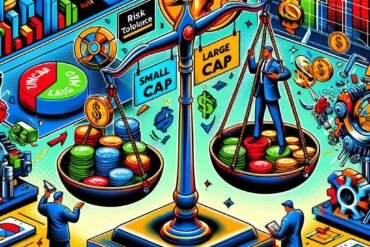One of my primary goals with the “How I Invest” series is to feature as many investors with as diverse a range of styles and strategies as possible.
The two most crowded trades in equities are without a doubt major market-cap weighted indexes and ESG funds.
As a contrarian investing blog it’s always fascinating to explore the other side of the equation.
And today we’ll do just that with our guest Mark Neuman of Constrained Capital, the creator of ESG Orphans ETF ORFN.
With this in mind, let’s turn things over to Mark!

How I Invest with Mark Neuman: ESG Orphans Investing Approach

Hey guys! Here is the part where I mention I’m a travel content creator! This “How I Invest” interview is entirely for entertainment purposes only. There could be considerable errors in the data I gathered. This is not financial advice. Do your own due diligence and research. Consult with a financial advisor.

These asset allocation ideas and model portfolios presented herein are purely for entertainment purposes only. This is NOT investment advice. These models are hypothetical and are intended to provide general information about potential ways to organize a portfolio based on theoretical scenarios and assumptions. They do not take into account the investment objectives, financial situation/goals, risk tolerance and/or specific needs of any particular individual.
No Substitute For Reading Historical Legends In Finance
Who were your greatest influences as an investor when you first started to get passionate about the subject?
How have your views evolved over the years to where you currently stand?
If you had to recommend a handful of resources (books, podcasts, white-papers, etc) to bring others up to speed with your investing worldview what would you recommend?
I read a ton in my early years.
One of the first books I dug into was, “Technical Analysis of Stock Trends,” by Edwards & McGee.
Bible-like.
It was only after I read it cover to cover that my friend who gave it to me said, “It’s really a reference book, not a cover to cover read.”
Oh well, I went through about 5 highlighters getting through it, it was chock full of so much good information.
From there, I read everything I could find from investors like George Soros, Jim Rogers, Bernard Baruch, Peter Lynch, and Marty Zweig, economists like JM Keynes, Milton Friedman, Friedrich Hayek, Ludwig von Mises just to name a few.
I read Graham and Dodd’s Security Analysis, but that one I skimmed, picked at, didn’t go cover to cover in one sitting!
There just no substitute for reading a lot of the historical legends in finance.
Throughout my career, especially in Japan in the 1990s, I was fortunate to have as trading counterparts TRAING LEGENDS on Wall Street.
LTCM, Tiger, Tudor, Moore, Soros, Kingdon, Citadel, etc. so being in discussions with those traders and PMs gave me access and insight to some of the greatest minds in investing.
I was lucky that way.
I attained my CFA charter in the back half of my Japan years, so there was tons of reading and studying that went into that as well.
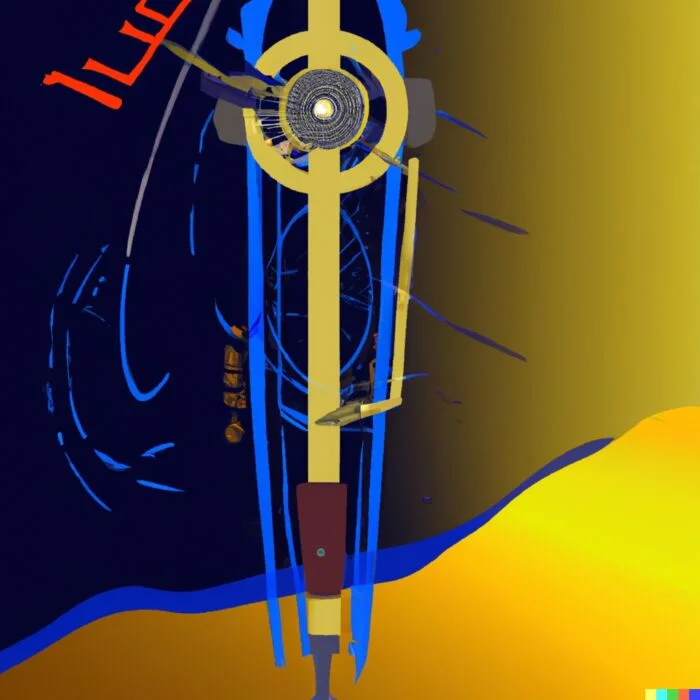
I Cut My Teeth On The Unwind Of A Bubble
Aside from investing influences, what real life events have molded your overall views as an investor?
Was it something to do with the way you grew up?
Taking on too much risk (or not enough) early on in your journey/career as an investor?
Or just any other life event or personality trait/characteristic that you feel has uniquely shaped the way you currently view yourself as an investor.
Education.
Travel.
Work Experience.
Volunteering.
A major life event.
What has helped shape the type of investor you’ve become today?
I got to Japan in 1994.
The bubble unwind was 4 years old.
I cut my teeth on the unwind of a bubble and the beginning of Frankenstein monetary policy.
All the while seeing the US tech bubble forming from afar.
I traded bubbly US stocks in my portfolio at night from Tokyo.
AMZN, YHOO, etc were just blips on a screen to me then.
Some went well, others not so well.
Learned a ton.
I came back to NYC with Merrill Lynch in mid-2000, After having seen Japan, I said to anyone who would listen, “This all looks completely bonkers and horrible risk/reward set up.”
They looked at me like I had 4 heads.
I even created a Japan Nikkei long term chart analog vs the NDX and the index trader pasted it on his desk.
For 2 years we watched the analog unfold quite on schedule.
But this approach endeared me to so many hedge funds, pension funds that I talked to and I was one of the few saying, “Risk/reward seems majorly dangerous right now.”
As a derivatives’ guy forever, I am always looking at both tails, always wary of potential downside.
On 9/11, I was 500 yds from the World Trade Center working for MER at the World Financial Center.
I heard the first plane.
I saw the second plane hit.
I saw stuff I don’t even like talking about to this day, including jumpers.
That has added to greater doses of skepticism for me on things.
It’s hard to explain, but some level of inherent distrust grew inside me from that day.
Some innocence of thought died perhaps.
I attended too many funerals, I guess.

The Younger You Are, The Bigger The Risks You Must Take
Imagine you could have a three hour conversation with your younger self.
What would you tell the younger version of yourself in order to become a better investor?
Something that you know now that you wish you knew back then.
The younger you are, the bigger risks you must take.
At 20yrs old, you have a long road of income in front of you (if you have a job) and therefore with your excess cash, your investments, take bigger risk.
And, further down the road, shift that towards setting up income streams to offset the slowdown in disposable income that inevitably comes over time through.
And, BUY MNST and BTC for pennies!
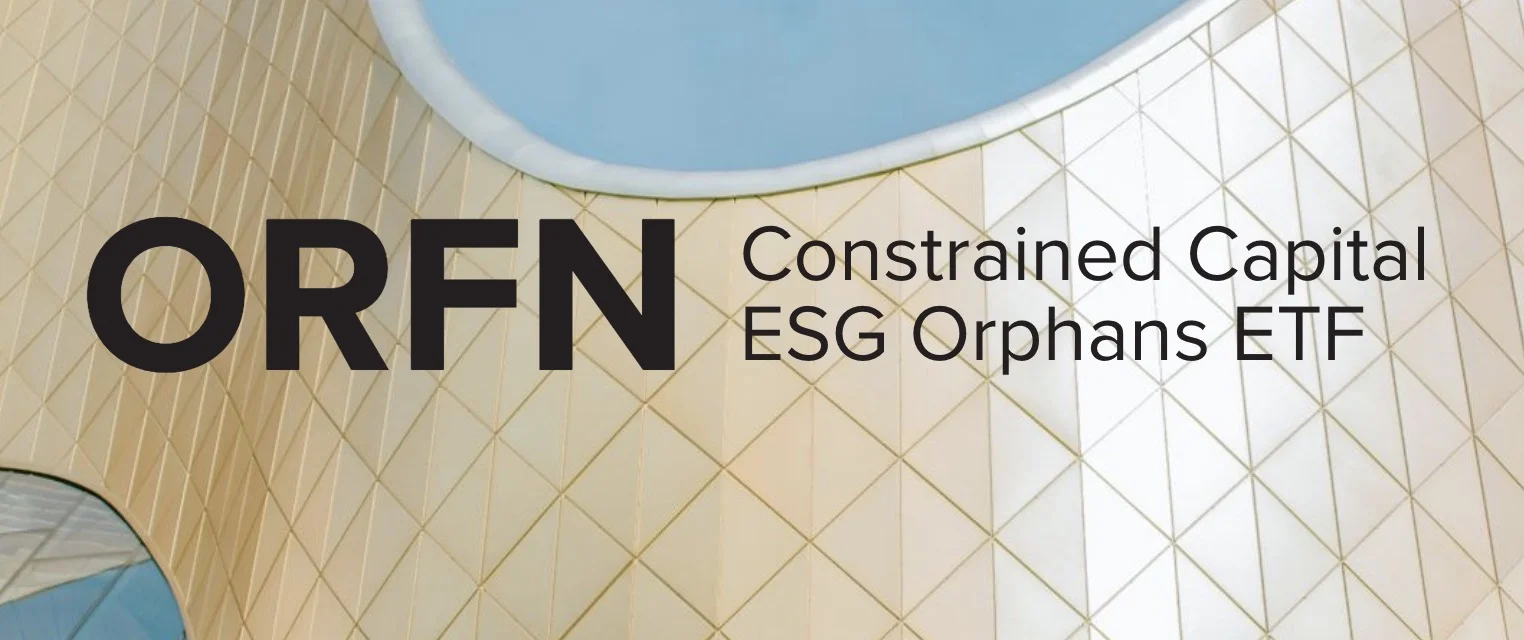
ESG Orphans: Exclusions Of The ESG Bubble
Let’s pop the hood of your portfolio.
What kind of goodies do we have inside to showcase?
Spill the beans.
How much do you got of this?
Why did you decide to add a bit of that?
If you’d like to go over every line-item you can or if would be easier to break your portfolio into categories or quadrants that’s another route worth considering.
When do you anticipate this portfolio performing at its best?

Currently I am focused on the ESG Orphans.
$ORFN ETF.
I am eating my cooking.
These are the exclusions of the ESG bubble.
1000s of hours of deep dive over the past 5 years led me to this.
I created this product after reading Cliff Asness of AQR, studying and then speaking with Aswath Damodaran, and ripping apart the entire ESG industry from top to bottom.
ESG pushed money to the wrong places.
Misallocation of capital, malinvestment due to capital constraints.
Exactly what Asness talked about.
His research was my North Star.
Nobody owns the ESG Orphans because the monolith of ESG pushed money away from the Orphans and to all else, especially big tech, healthcare.
The Orphans are high expected return securities that should provide superior risk-adjusted returns over time.
So far so good.
It’s still early.
The ESG unwind will continue.
Too many people have been misled by ESG.
Returns are bad, fees are high, objectives were not attained.
So this unwind will continue and the under owned Orphans will appreciate and outperform over the next 5-7 years.
This portfolio will suffer if we return to the go-go days of QE/ZIRP and rampant speculation.
While this could occur, I think it’s extremely unlikely after the past decade.
I do have other exposures currently, focused on commodities, dividends, international, and value.
It is my belief that QE/ZIRP enabled horrible investment decisions where bad decisions/investments (corporate and markets) were costless.
Once the rates’ paradigm shifted, those mistakes were not costless at all.
We are seeing that play out now.
Time and wringing out the excess are the only way things reset.
Fed pivot, lower rates at this stage will be like 2000-2002 when Fed Funds went 6% to 2% and the SPX halved.
Those will be panic-like rate cuts, and less for the purpose of a stimulative boost.
source: Max Gagliardi on YouTube

There’s No Substitute For Deep-Dive Research
What kind of investing skills (trading, asset allocation, investor psychology, etc) are necessary to become good at the style of investing you’re pursuing?
Is there a certain type of knowledge, experience and/or personality trait that gives one an advantage running this type of portfolio?
I believe heavily in the Mosaic Theory.
Piecing together things from column A, B, and C, and assessing the risk from the combination of inputs.
There’s no substitute for deep-dive research (and doing your own work!).
Add in some technical analysis skills.
Also be able to access/process insights and analysis from others whose skill sets you can trust.
Finally, do not underestimate flows and the power of walls of money going one place or another, rightly or wrongly.
When things don’t make sense, that’s probably when you are fighting mindless money in pursuit of something for possible wrong reasons.
See the acceleration of passive flows from 2017-2021 irrespective of fundamentals as a recent example.
Those kinds of things can go for longer than logic would dictate.
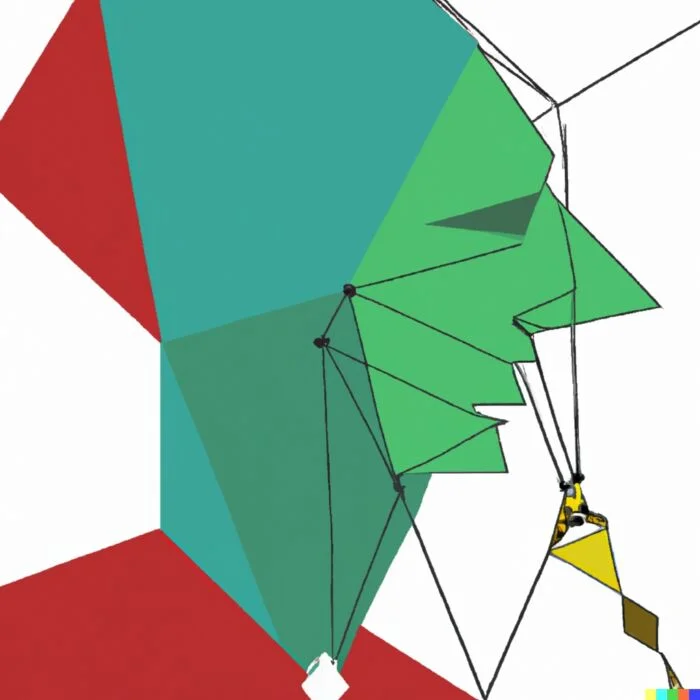
More Concentrated Exposure: Long $ORFN And Short $QQQ
What would be a toned down version of your portfolio?
Something that’s a bit watered down.
Conversely, what would be a more aggressive version of your portfolio, if someone were willing to take on more risk for a potentially greater reward?
I guess for my current stance, long $ORFN and short $QQQ would be the outright bet in concentrated form.
But that’s not smart risk management for me at this stage given my objectives, risk profile.
That’s why I have a little in gold-related, other commodities, some international, and some dividends.
The toned-down version would include smaller allocations to the existing and a push into other sectors, other securities that may be less correlated in pursuit of greater diversification.

Pattern Recognition Is My Greatest Strength
What do you feel is your greatest strength as an investor?
What is something that sets you apart from others?
Conversely, what is your greatest weakness?
Are you currently trying to address this weakness, prevent it from easily manifesting or simply doubling down on what it is that you’re great at?
Pattern recognition is my greatest strength.
I’ve always had a knack for seeing things, anticipating in the markets.
It’s genetic to some degree.
My kids tested very high for pattern recognition when they had testing done in their early years.
I also start with technicals to give me some historical perspective.
This and my ability to use the Mosaic Theory of piecing together a thesis has set me apart and allowed me to get the ear of a lot of big investor legends along the way.
I heard many times over decades, “Mark you’re one of the few critical thinkers left on the sell-side.”
My weakness has always been getting shaken out of positions, winners and losers.
I can talk myself out of a smart trade for the wrong reasons.
Over time I’ve started to say to myself, “What would the younger Mark do here?
Maybe don’t do that so fast.”
But those engrained habits are hard to break the longer they’ve existed.

Sailors Don’t Go On The Ocean Without Looking At Charts
What’s something that you believe as an investor that is not widely agreed upon by the investing community at large?
On the other hand, what is a commonly held investing belief that most in the industry would agree with that rubs you a bit differently?
If you don’t use technical analysis to help enhance your process, you are missing a big piece of the puzzle.
Sailors don’t go on the ocean without looking at charts.
Surgeons don’t perform surgery without knowing the map of the body and the X-rays/MRIs.
Why would anyone wade into the investing pool without knowing what’s happened, where the pinch points (support, resistance) are?
When I was at Susquehanna, the Founder and investing Hall of Famer, Jeff Yass (who I was able to sit in front of for 2 years…an invaluable experience) asked me, “Do people really rely on that stuff?”
I told him, in a poker game, imagine knowing what events would make a player move one way or another in the hand.
He said, “I see how it could apply. Not sure it matters to me, but I see how it could be used.”
On the other hand, 90% of sell-side analysts are useless.
There might be something useful in seeing their models and comparing them to yours, but as far as “buy” and “sell” recommendations, completely useless.
At this stage, they are pumpers for banking deals and corporate access.
They are completely compromised.
We’ve seen this time and again in the cycles.
Strategists are similar.
There’s never going to be a strategist who provides routinely bearish outlooks else they won’t be strategists for that long.
The best signals from strategists are when they are ALL on one side of the ship and nobody sees the possibility of something else because that’s most likely the outcome.
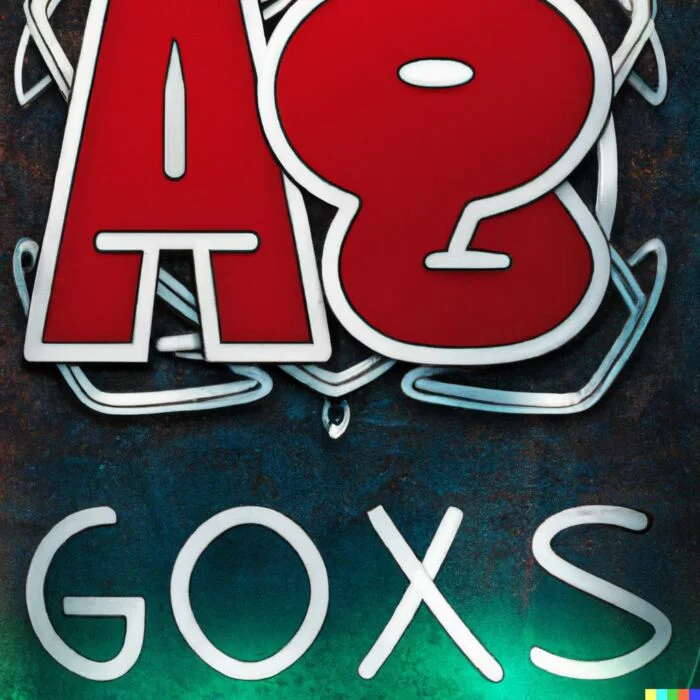
At This Stage I Know My Core Competencies And Skills
What’s a subject area in investing that you’re eager to learn more about?
And why?
If you knew more about that particular topic would it influence the way you’d construct your portfolio?
At this stage of my investing life, I know my core competencies and skills.
I continue to look to hone those, sharpen the techniques as opposed to learning extensively about new areas.
Think about crypto and Blockchain.
I am a believer in the latter, less a believer in the former.
I want to learn a bit about both aspects, but neither will ever be too big a time or asset allocation for me.
I dabbled a bit in cryptos (mostly BTC and ETH) for a moment or two (trading sardines, not eating sardines) but they were never and won’t be ever a significant portion of my time or allocation.
I cut my teeth on macro, derivatives, and equities.
I also traded a bit in bonds, commodities, and currencies and helped others in these areas too.
It’s more a generalist perspective than a specialist.
But having worked with some of the best, Wall Street Wizard-types, I’ve become skilled in these areas.
Taking on too much new stuff takes me away from the core competencies where I’ve had success.

Anti-Portfolio: Stuff That’s Less Tangible, Less Calculable As A Value
What would be the ultimate anti-Mark Neuman portfolio?
Something you’d never own unless you were duct-taped to a chair as a hostage?
What about this portfolio is repulsive to you?
Conversely, if you were forced to Steel Man it, what would potentially be appealing about the portfolio to others?
What is so alluring about it?
Cryptocurrencies, NFTs, and the stuff that’s less tangible, less calculable as a value, would be the anti-Mark Neuman portfolio.
Assets enabled extensively by the recent free money and unlimited fiat pushed by the Fed goes against my core.
The further it gets from value and an ability to judge it by modeling and cash flow analysis, the harder it gets for me.
This is a tricky thesis to have though.
Sometimes you need to speculate to capture a potential big winner.
But if you go into these areas and don’t have discipline, the odds are against you.
As a former private pilot, an adage I lived by and still do is, “Plan the flight/trade; fly/trade the plan.”
This needs to be established before wheels are up, so you do it at a time of clear thought, not under duress or while emotionally charged.
That said, it was easier to take these “have faith” type risks when I was younger.
I don’t fly planes anymore either!
I had zero BTC interactions above 18k.
I missed the move to 67k and I missed the fall from 67k to 18k.
I messed around in it early, just trading around, and then walked away from it.
It got absurd and I focused elsewhere.
Steel Man: High dividends, quality companies, steady cash flows.
It would be boring to some, but sort of steady as she goes to others.
“Get rich quick” is never an investing philosophy.
But sure as anything, this mindset has been inculcated by the Fed and easy money for a while, especially since the GFC.
I’ve seen cycles before this, and I’ve seen the extremes over 30 years.
At this stage, I prefer more Steel Man than abject speculation in the hopes of a 50% move in the next 3mos.

Connect With Mark Neuman
ESG Orphans websites:
www.esgorphans.com (Index site, live time updates, dynamic, TWTR posts, news, research, content)
www.constrainedcapitaletfs.com (ETF website, more static, contains fact sheet, pitch deck, prospectus)
Twitter: @MarkNeuman18 and @ESGOrphan
Email: mark@constrainedcapital.com
Additional Resources:
Mark’s appearance on Bloomberg Radio with Matt Miller on January 4th (from the 32:30 mark): https://www.esgorphans.com/2023/01/04/bloomberg-radio-tesla-economy-tech-and-anti-esg/
Mark’s appearance on Animal Spirits Podcast with Ben Carlson and Michael Batnick in late December: https://www.esgorphans.com/2022/12/19/animal-spirits-podcast-talk-your-book-the-opposite-of-esg/
Mark’s 2022 year-end, 2023 outlook piece: https://www.esgorphans.com/2023/01/20/happy-new-year-bearish-action-defined-2022-those-have-been-rare-since-the-global-financial-crisis/
Nomadic Samuel Final Thoughts
I want to personally thank Mark for taking the time to participate in the “How I Invest” series by contributing thoughtful answers to all of the questions!
If you’ve read this article and would like to be a part of the interview series feel free to reach out to nomadicsamuel at gmail dot com.
That’s all I’ve got!
Ciao for now!
Important Information
Investment Disclaimer: The content provided here is for informational purposes only and does not constitute financial, investment, tax or professional advice. Investments carry risks and are not guaranteed; errors in data may occur. Past performance, including backtest results, does not guarantee future outcomes. Please note that indexes are benchmarks and not directly investable. All examples are purely hypothetical. Do your own due diligence. You should conduct your own research and consult a professional advisor before making investment decisions.
“Picture Perfect Portfolios” does not endorse or guarantee the accuracy of the information in this post and is not responsible for any financial losses or damages incurred from relying on this information. Investing involves the risk of loss and is not suitable for all investors. When it comes to capital efficiency, using leverage (or leveraged products) in investing amplifies both potential gains and losses, making it possible to lose more than your initial investment. It involves higher risk and costs, including possible margin calls and interest expenses, which can adversely affect your financial condition. The views and opinions expressed in this post are solely those of the author and do not necessarily reflect the official policy or position of anyone else. You can read my complete disclaimer here.





